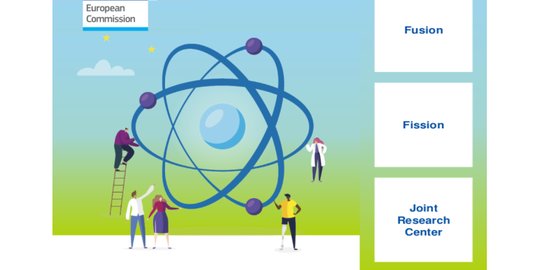Horizon Europe is complemented by the Euratom Research and Training Programme 2021-2025 (Euratom Programme).
Euratom Programme uses mainly the same instruments and rules for participation as Horizon Europe.
It focuses on Fusion, nuclear safety, radiation protection and radioactive waste management and decommissioning.
The Euratom Programme complements the achievement of Horizon Europe’s objectives including in the context of the energy transition as well as contributing to the implementation of the European fusion roadmap.
The new programme places increased emphasis on non-powerapplicationofnucleartechnology. In this regard, the medical field is the most prominent and EURATOM is supporting the European’s Beating Cancer Plan (cf. ionising radiation used for diagnostics and therapy). There is also much potential in the application of nuclear science to fields like agriculture, environment and space.
The new Programme has five new features:
- Simplification. The structure of specific objectives has been streamlined and the number of objectives have been reduced.
- Education and Training. These activities have been strengthened to maintain and develop further nuclear expertise and knowledge in Europe. Nuclear researchers will be eligible to the Postdoctoral Fellowships of the Marie Skłodowska Curie actions to enhance the mobility of nuclear scientists.
- Synergies with Horizon Europe. A clearer legal base for synergies with Horizon Europe has been provided.
- Synergies between actions. It will also develop synergies with other areas (e.g. artificial intelligence and robotics). Regarding synergies between indirect actions and direct actions, the Commission's Joint Research Centre will complement activities of the consortia receiving Euratom grants in areas where it has the necessary competences, expertise and dedicated infrastructure. The JRC will not receive funding from indirect actions. Closer coordination and co-design of Work Programmes will allow nuclear researchers to better access to Joint Research Centre expertise and its research infrastructure. Where relevant, the JRC will complement activities of the consortia receiving Euratom grants.
- Focus on health issues. The new Euratom Work Programme addresses research on cross-sectorial fertilisation and non-power applications. An emblematic example is the use of ionising radiation to support safe and optimised medical procedures, contributing to Europe’s Beating Cancer action plan.

